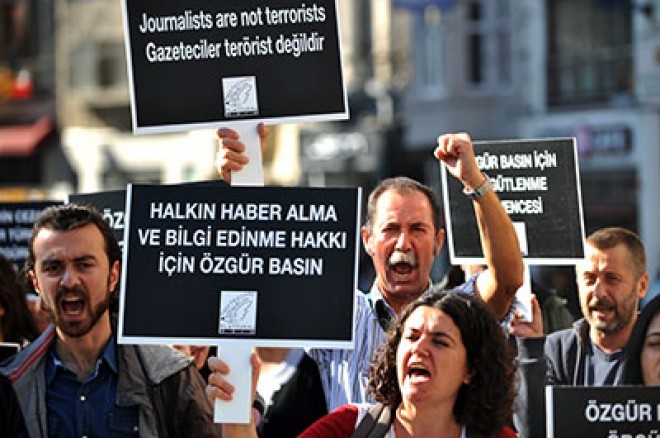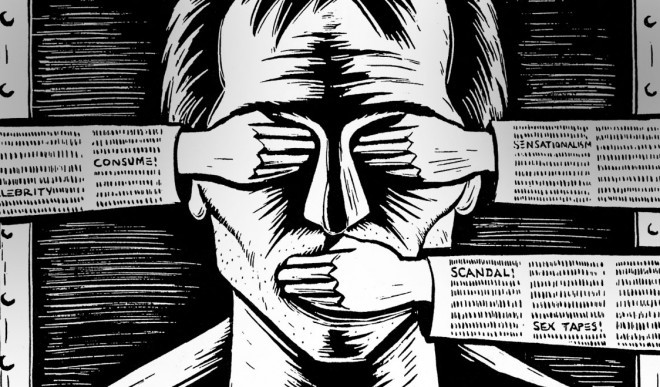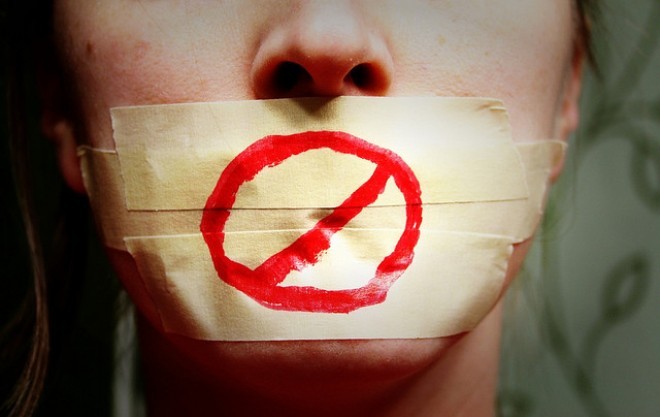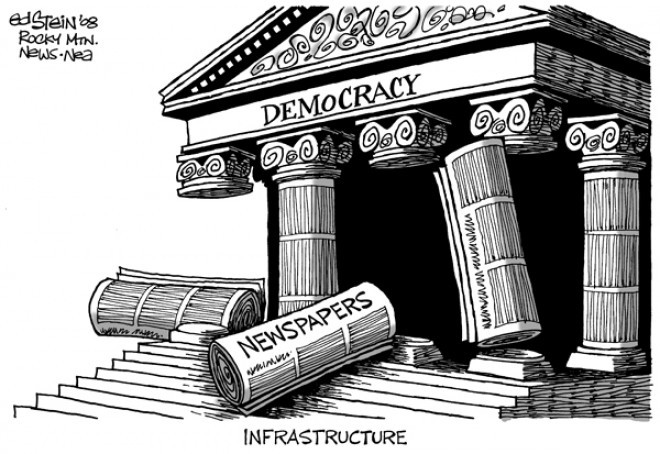
Almost every child who is reared in the United States is made aware at a very young age of our Constitution and Bill of Rights. Along with these hallowed laws that are meant to run our country, we are endlessly educated on what are known as the “amendments” – some of which are the very statements that the rest of the world thinks of when discussing American politics. However, as with all things, whether they be physical or otherwise, time will begin to have it’s affect on everything.
What is happening to the very documents that run our country is exactly that. Many articles have been written about those that feel our American Constitution is being ripped apart, some even say it’s invalid at this point due to laws being passed that override it’s contents. However, today, we are going to focus on what many consider the amendment that makes our country what it is, The First Amendment.

BYPASS THE CENSORS
Sign up to get unfiltered news delivered straight to your inbox.
You can unsubscribe any time. By subscribing you agree to our Terms of Use
Latest Video
The text of the first amendment is simple, yet powerful. It reads: “Amendment I. Congress shall make no law respecting an establishment of religion, or prohibiting the free exercise thereof; or abridging the freedom of speech, or of the press; or the right of the people peaceably to assemble, and to petition the government for a redress of grievances.” Freedom of speech and press.
The very things that so many countries across the globe forbid, yet we promote fearlessly and protect aggressively. However, something very unsettling has been brewing since 2008 that is putting into question the very validity of our first amendment rights – and could potentially allow the government to jail American journalists for not agreeing with them. However, to understand why this is so important now, we must look to other countries who jail journalists on a regular basis.
Each December, The Committee to Protect Journalists, a special advocacy group committed to protecting the rights of journalists globally released a report on countries that jail journalists. In their detailed study, they say, “Turkey, Iran, and China accounted for more than half of all journalists imprisoned around the world in 2013, the Committee to Protect Journalists has found. In its annual census, CPJ identified 211 journalists jailed for their work, the second worst year on record after 2012, when 232 journalists were behind bars.”
Most journalists are held on anti-state charges, and very few are ever released. Many of the hard working men and women are accused of sponsoring anti-government plots and jailed based on broadly worded laws that easily could include anyone.
Journalism is a right in many countries, including The United States of America. The freedom of speech and press is intentionally placed into our law system in order to keep a proper balance of checks and balances. But, what happens when the government doesn’t like what a particular journalist has to say? The stories of journalists being thrown in jail in other countries seems, often, far and away. However, what about journalists being jailed on our own soil? Many wondered if it has happened. The answer is not only yes, but there is a current case looming that could threaten American journalists on American soil in a whole new way.
Roger Shuler, a conservative blogger, is currently in jail for exercising his first amendment rights. The CPJ in a report states, “Shuler, whose blog Legal Schnauzer specializes in allegations of corruption and scandal in Republican circles in Alabama, was arrested on contempt of court charges for failure to comply with an October 1, 2013, preliminary injunction prohibiting him from publishing certain stories on his blog. The charges stem from a defamation suit brought by prominent local attorney Robert Riley, Jr., son of a two-term former Alabama governor and a rumored future political candidate himself. The suit is related to Shuler’s blog posts in July 2013 that claimed Riley had an extramarital affair and offered details. Riley vehemently denies the allegations.” They go on to say, “Leading press freedom and civil rights groups said the injunction contradicted decades of First Amendment jurisprudence and did so in complete secrecy, as all records in the case were initially sealed by the court.”
Courts sealing documents and jailing journalists is a direct violation of The First Amendment. The Shuler case is ongoing, but, as we noted earlier in the article, there is an even bigger case that has been brewing since 2008 that threatens the very core of The First Amendment and the journalistic freedoms that come with it.
This week, an unprecedented 14 Pulitzer Prize award winning journalists issued a joint press release demanding that the Department of Justice stop trying to jail fellow journalist James Risen. Risen is being pursued for refusing to disclose a source to The United States Government.
Why is this case so defining? For starters, in the last decade more journalists have been jailed for refusing to give up sources than any other time in history. In 2013, Jon Hosey, a reporter for AOL refused to give up his source and was threatened with jail time. In 2006, freelance videographer Joshua Wolf was jailed after refusing to cooperate with a grand jury investigation of an alleged arson against a San Francisco police car during an anarchist protest in July 2005.
Also in 2005, New York Times reporter Judy Miller was jailed for refusing to give up her CIA source’s name. According to a timeline by The First Amendment Center, “The 2005 jailing of New York Times reporter Judith Miller brought into focus the larger issue of whether the First Amendment protects journalists who refuse to reveal confidential sources. Since the U.S. Supreme Court handed down its 1972 decision in Branzburg v. Hayes, the number of journalists found in contempt of court has grown.” A richly detailed timeline can be found on The First Amendment Center’s website.
So, are journalists protected under the first amendment for not naming sources? According to Wikipedia, there do exist in the United States “shield laws“. By Wikipedia’s definition, “A shield law is law that gives reporters protection against being forced to disclose confidential information or sources in state court. There is no federal shield law and state shield laws vary in scope. In general, however, a shield law aims to provide the classic protection of, “a reporter cannot be forced to reveal his or her source” law. Thus, a shield law provides a privilege to a reporter pursuant to which the reporter cannot be forced by subpoena or other court order to testify about information contained in a news story and/or the source of that information. Several shield laws additionally provide protection for the reporter even if the source or information is revealed during the dissemination of the news story, that is whether or not the source or information is confidential. Depending on the jurisdiction, the privilege may be total or qualified, and it may also apply to other persons involved in the news-gathering and dissemination process as well, such as an editor or a publisher.”
Shield laws are an increasingly grey area, as evidenced by the sudden push by the top journalists in the world for the United States Department of Justice to stop harassing Risen. Risen, a Times reporter, was initially subpoenaed in 2008 when he was asked to testify against CIA agent James Sterling who was then charged under the Espionage Act for allegedly giving CIA secrets to Risen.
Risen again was subpoenaed this year when his first court order expired. In a newly released article from RT.com, they go on to say, “Federal prosecutors can now seek to jail Risen if the journalist continues to fight their efforts to have him testify, and on Monday a group of his colleagues issued statements condemning the Justice Department’s pursuit of a journalist’s source.”
The possibility of Risen so easily being jailed has thrown the journalistic world into an uproar. The 14 Pulitzer Prize winning journalists released joint statements today in defense of Risen. Barry Bearak, an International Reporter for The New York Times said, “I’ve known Jim Risen for more than 30 years, been his colleague at three different newspapers, and while I have respected him immensely at every step of the way, I’ve never admired him more than now. He is carrying the banner for every American journalist. And if he goes to jail, a good bit of our nation’s freedom will be locked away with him.”
The other journalists’ comments ranged from, “Enough is enough” to “A vibrant democracy is not possible without a free press. Our nation needs journalists who are willing – and able – to reveal facts that make the government uncomfortable.”
There is national and international support for Risen, according to RT, “Roots Action, the group that is gathering statements from journalists in support of Risen, say they also plan to deliver more than 100,000 signatures to the Obama administration asking the Justice Dept. to end its pursuit of the journalist’s source. On Thursday, the group plans to hold a news conference at the National Press Club in Washington, DC, where Risen himself is expected to speak”
The Committee To Protect Journalists says in it’s earlier mentioned report, “CPJ believes that journalists should not be imprisoned for doing their jobs. The organization has sent letters expressing its serious concerns to each country that has imprisoned a journalist. In the past year, CPJ advocacy led to the early release of at least 39 imprisoned journalists worldwide.” It appears as if soon the CPJ will be having to do so in the United States as well.






